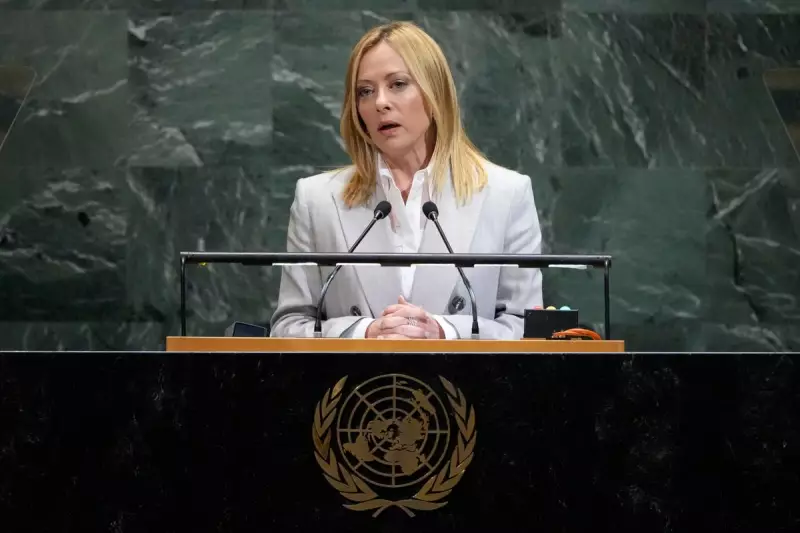
Italian Prime Minister Giorgia Meloni has ignited a political firestorm by publicly dismissing South Africa's genocide case against Israel at the International Court of Justice as "groundless," positioning Italy firmly alongside its Western ally amid the ongoing Gaza conflict.
Political Backlash Erupts
The conservative leader's controversial remarks have drawn immediate condemnation from opposition parties and human rights organisations across Italy. Critics argue that Meloni's stance undermines international legal institutions and turns a blind eye to the escalating humanitarian crisis in Gaza.
During a press conference, Meloni stated: "I believe the accusation of genocide against Israel to be unacceptable and completely unfounded." This position aligns Italy with other Western nations, including the United States and Germany, who have similarly rejected South Africa's legal challenge.
Legal and Diplomatic Implications
The International Court of Justice in The Hague is currently considering South Africa's case, which alleges Israel has violated the UN's Genocide Convention through its military operations in Gaza. While a final ruling could take years, the court may issue provisional measures in the coming weeks.
Meloni's government finds itself walking a diplomatic tightrope, balancing its traditional support for Israel with growing international concern over Palestinian civilian casualties. The Prime Minister's comments come as Italy holds the G7 presidency, adding significance to her position on the world stage.
Domestic Political Fallout
Opposition leaders have seized upon Meloni's statement, with centre-left politicians accusing the government of abandoning Italy's traditional role as a mediator in Middle Eastern conflicts. Some have called for parliamentary debate on Italy's official position regarding the ICJ proceedings.
The controversy highlights the delicate balancing act facing European leaders as they navigate the complex political landscape of the Israel-Hamas conflict, with domestic political considerations increasingly colliding with international diplomatic pressures.






